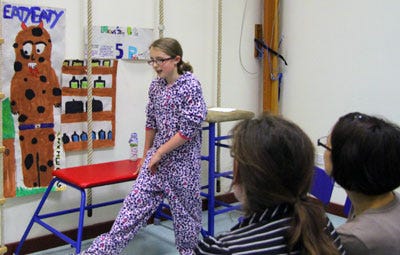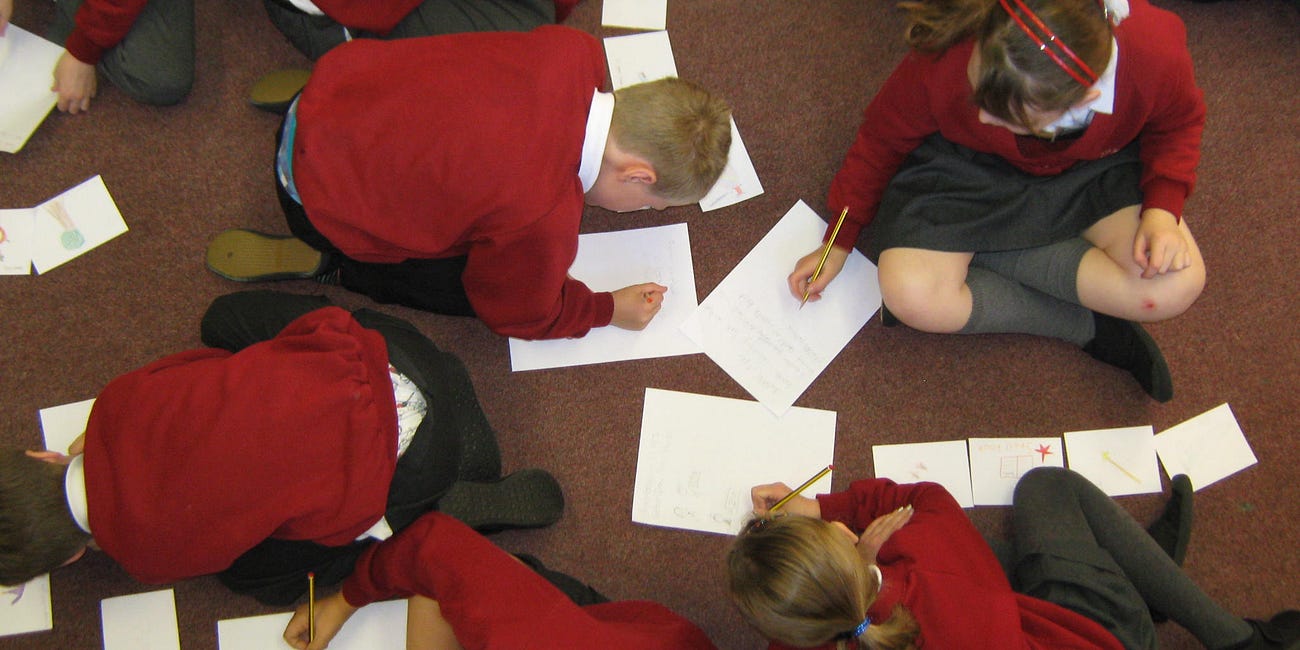Inspire Parental Engagement with Reading
Your learners love the books you share in school, yet their book bags are rarely opened...
While delivering a string of teacher development workshops in the weeks around World Book Day 2024, I noticed some common themes emerging across the Q&A portions. So for the rest of this World Book Month, this Substack will open those conversations for all…
“It feels like we’re doing the best we can here in school, but of course then they go home and they’re given no encouragement to read at all. Book bags are coming back unopened. We’ve tried ‘Reading Picnics’, but they ultimately just turn into ‘Picnics’. Any ideas how we can engage families at home with reading?”
I’m often booked by schools with learners who are struggling with literacy, and so it’s sadly very often that I hear a question like this one. Teachers, TAs, and reading volunteers may be modelling great reading practices in school, but how can they overcome the negativity around reading that learners face once they exit through the school gates?
Of course, schools with such issues are often in communities with such issues. Grown-ups in these communities will often claim, “My child’s just not interested in reading.” But low levels of literacy among grown-ups often results in barriers to reading in the home.
If the grown-ups themselves struggle to read, they’re more inclined to seize upon the slightest hint of distraction in their child, and use it as an excuse to curtail or forgo the activity. It’s not really about the child’s lack of interest – it’s the fear of showing their own lack of skill, both to the school and their child.
I’m not for a minute suggesting this is deliberate act. It is far more likely a subconscious process for self-preservation, and one that does in fact have its benefits: children should look up to the grown-ups in their homes. And most grown-ups will readily acknowledge the importance of reading, with little awareness of how their own behaviours might be affecting their children’s ability to enjoy and progress with the skill.
By far the best way I’ve found to blow these barriers to biscuit crumbs is to begin by letting grown-ups witness the children in their care engaging in the sheer joy of stories and reading. The ‘Reading Picnic’ idea is a fantastic example of how this can be done – but rather than expecting grown-ups to read to their children, flip it around so the children tell stories to their grown-ups.
Did you spot the subtle synonym switch there? When your learners “tell stories” to their grown-ups, that may involve reading – if the learners are confident readers. But it could just as easily involve the learners telling the story of a book from memory, engaging their grown-ups in a conversation about the story – and that’s something pretty much every learner can do, whatever their literacy level.
If you try this, do ensure your learners have their books nearby, even if they don’t read from them – and even if there aren’t any pictures to show beyond the front cover. This makes it very clear where their enthusiasm is rooted, so the grown-ups leave with no doubt that their children took pleasure from a book.
And yes, “pretty much every learner”. Learners as young as 4 can retell a story. Non-verbal learners who love to draw can take their grown-ups on a visual tour of a tale. Even learners with high physical or speech impediments will usually show some expression of delight at seeing or feeling a book they’ve enjoyed hearing, or a puppet/picture of one of its characters.
A step up from the ‘Reading Picnic’ is the event I described in the EU’s guidance on storytelling for schools as ‘the Storytelling Bazaar’. This is an alternative to theatrical presentations to grown-ups: instead of the grown-ups sitting assembly-style and watching their children on stage, they visit a number of ‘stalls’, each with two or more learners taking it in turns to tell stories, either on their own or in groups.
Amy Scott Robinson and I devised the Storytelling Bazaar primarily as a way for grown-ups to enjoy the stories their children had created in workshops we’d delivered in their schools – Nick Gibb MP, the Schools Minister in 2016, enjoyed one of these at St Andrew’s School in Soham where he went on to deliver his speech for National Storytelling Week that same year. Amy and I were trading as ‘Snail Tales’ at the time. $;-)
The Storytelling Bazaar works well because, instead of having one shot to get their performance right in front of 100+ grown-ups, each learner has multiple opportunities to present to small groups. That means they feel less pressure, and have in-built rehearsal time – we always give grown-ups a map to help them find their child’s ‘stall’, which includes a large disclaimer at the front saying, “DO NOT VISIT YOUR CHILD FIRST – you will see them at their best if you make them your third/fourth stop.”
But even though we created the Storytelling Bazaar for learners to tell stories of their own making, there’s no reason you can’t adapt it for them to tell stories you’ve told them, or read to them, or that they’ve read themselves. In fact, do the latter, and you’ll have a veritable celebration of reading for pleasure that grown-ups can’t ignore!
I’m sure you could float the Titanic on the number of joyful tears shed by grown-ups at events like these. When they sit on a mat and look up at their children, who are confidently and excitedly sharing the joy they’ve found in an act of creativity… Seeing their children empowered has a profound impact.
Such an activity is just a start, of course, albeit a powerful one. You’ll also need to put in a fair amount of preparation with your learners – e.g. by using the Yes/No, Try Again game from the previous post in this series…
Help Young Learners to Beat the Blank Page
While delivering a string of teacher development workshops in the weeks around World Book Day 2024, I noticed some common themes emerging across the Q&A portions. So for the rest of this World Book Month, this Substack will open those conversations for all…
But I strongly encourage you to think of replacing your next ‘Family Assembly’, ‘Family Engagement Day’, or even your Christmas Nativity with an activity like one of these ‘Reading Picnics’ or ‘Storytelling Bazaars’. Let the power of storytelling and story sharing show what it can do for literacy in your community.
I’d love to know how you get on with these ideas! Or, if there’s another area of literacy your learners are struggling with, perhaps that could be a future topic for one of these posts? Either way, please…





